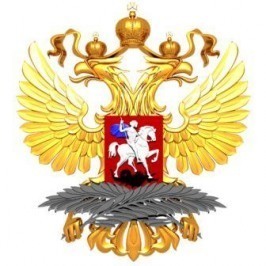The approaching date of expiry (July 17) of the Black Sea Initiative on Ukrainian food exports, which cannot be extended without the consent of all the parties involved – Russia, Türkiye, and Ukraine – has caused another surge of propaganda activity on the part of Western countries, Kiev, and the UN Secretariat. A year after the signing of the Istanbul agreements, no one has any doubt or illusions as to the humanitarian bias of the Black Sea Initiative, or the prospects for implementing the Russia-UN Memorandum on normalising Russian exports of agricultural products and fertilisers.
Nevertheless, certain circles continue using arguments to the effect that the world will die of hunger without Ukrainian fodder corn, while the illegal, unilateral sanctions the West has introduced against Russia do not apply to food and fertiliser. In this connection, it is necessary to reiterate the facts on the true state of affairs as regards the implementation of the Istanbul agreements.
Aimed at providing relief to destitute countries in Africa, Asia, and Latin America, the Black Sea Initiative has degenerated into a purely commercial export of Ukrainian food to the well-fed countries. Of the 32.6 million tonnes of grain exported from the ports of Odessa, Chernomorsk, and Yuzhny since August 1, 2022, the greater part – 26.2 million tonnes, or 81 percent – was sent to countries with a high or higher-than-average level of incomes. The poorest countries (Ethiopia, Yemen, Afghanistan, Sudan, and Somalia) received a mere 862,068 tonnes, or 2.6 percent. During the twelve months of the Black Sea Initiative, just two ships of the UN World Food Programme (UNWFP) per month were employed on average and 90 commercial grain carriers.
Against this background, the situation with normalising Russian food and fertiliser supplies to the world markets, as envisaged by the Russia-UN Memorandum, continued to decline. Since July 2022, the EU has introduced five new packages of anti-Russia sanctions in addition to the constantly expanding US and UK exterritorial restrictions that have blocked the Russian agricultural exports. There are five systemic goals, which, if achieved, would have made it possible to remove these obstacles. They are as follows: reconnecting Rosselkhozbank to SWIFT, resuming the supplies of spare parts for agricultural machinery, reviving the Togliatti-Odessa ammonia pipeline, making arrangements for transport logistics and insurance, and unfreezing financial assets. It looks like the first three have been removed from the agenda altogether, and there is no progress in view on the last two.
The UN efforts and their “results” can be illustrated by the cases of the ammonia pipeline and the intended free delivery of Russian mineral fertilisers to the poorest countries. On June 5, the ammonia pipeline was blown up in Kiev-controlled territory using the Nord Stream model. We are referring to the pipeline that used to pump about 2 million tonnes of raw ammonia per year, enough to produce fertilisers to feed 45 million people. Russia planned to hand out 262,000 tonnes of fertiliser free of charge to the destitute countries, but only two batches – 20,000 tonnes to Malawi and 34,000 tonnes to Kenya – have been delivered since September 2022.
The UN leadership, nevertheless, keeps silence on both embarrassing cases. Western representatives, in the meantime, are declaring in public that there can be no exemptions from the anti-Russian sanctions, not even in the matter of food and fertiliser supplies. This is the reason why SWIFT is off-limits, there is a ban on supplying agricultural spare parts, the entire territory of Russia is on the list of military risk zones which leads to exorbitant insurance rates, and Russian companies are denied access to their own assets.
Under these circumstances, it is obvious that there are no grounds for extending the Black Sea Initiative, which expires on July 17. At the same time, Russia is persisting with its good-faith and responsible approach to its commitments under the agreement and is undertaking the necessary efforts in strict conformity with the rules of procedure to enable all vessels involved to complete their mission and leave the Black Sea before the agreement expires. Meanwhile, the Russia-UN Memorandum is intended for three years and requires no special decisions for its extension.























